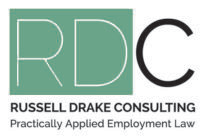Last week the Government announced the ending of some Covid-19 related regulations, with this announcement now raising further questions for Employers.
- Are we legally entitled to maintain any Covid-19 Protection Policy requirements if we want to?
- Can I still have a policy whereby I will only recruit fully vaccinated workers?
- Do I have to re-employee any previously terminated unvaccinated worker?
- Do previously terminated unvaccinated workers now have a right to raise a grievance related to their dismissal?
- What happens if my vaccinated staff do not want to work with unvaccinated employees?
The Government was clear from the outset of the Covid-19 crisis that, “all usual employment law requirements continue to exist” – with this also being read to imply that this naturally extends to human rights matters – including the right not to be discriminated against on prohibited grounds.
Section 103A of the Employment Relations Act 2000 sets out the “Test of Justification” that forms the basis of security by the Authority when determining whether an employer’s actions in any given situation were fair and reasonable. The Authority consider this question from two perspectives; whether the action of the employer was substantially justified and whether this was undertaken in a procedurally fair manner.
The key aspect of s103A that is relevant to the current context is “what a fair and reasonable employer could have done in all the circumstances at the time the dismissal or action occurred”.
This therefore means that the decision to dismiss an employee would have to be considered in light of the Government Regulations that existed at the time of the dismissal with an employee unable now to raise claims against the employer where the Government has now amended those regulations. The right for an employee to raise a Personal Grievance within 90 days of the dismissal also continues to apply meaning that, if the grievance has not already been raised within that period, it cannot be raised outside of the period.
Termination under such grounds is the ending of the employment relationship and as such, any change to the regulations now does not provide the terminated employee with any natural rights to be reinstated – as this would form a ‘new’ employment relationship.
This does not however prevent an ex-employee from expressing an interest in re-employment or applying for any vacancies that might now exist in your business. If the employer is not open to re-employment this is where the potential of a human right (discrimination) claim could be raised, if the employee has the suitable skills, and they believe that the failure to be re-employed is one based primarily on the fact that they remain unvaccinated – in fact to even enquire by the employer as to their current vaccination status (where justified reasons for needing to know this cannot be established) may be a breach of the Act in its own right.
The reintroduction, or employment, of unvaccinated workers to the business may cause some concerns for existing vaccinated staff who perceive the risks to their personal safety and wellbeing to be unreasonable. However, based on recent Court rulings, and the increasing scientific knowledge associated with the virus, it would be hard to maintain this argument. This has the potential to create some very challenging situations for employers as they seek to balance the culture where vaccinated and unvaccinated workers may need to work in close proximity, while sharing conflicting health and human rights viewpoints.
The question of continued mask wearing compliance within the workplace will only now be able to be answered as a result of a new (current context) robust health and safety assessment to determine if there are still justified grounds to require the mandating of mask wearing within the workplace.
Therefore, although we may be seeing some light emerging at the end of the tunnel, the challenges, risks and potential liabilities for employers are far from over with a cautious and informed approach being required more than ever as we seek to navigate the next step of this journey.

